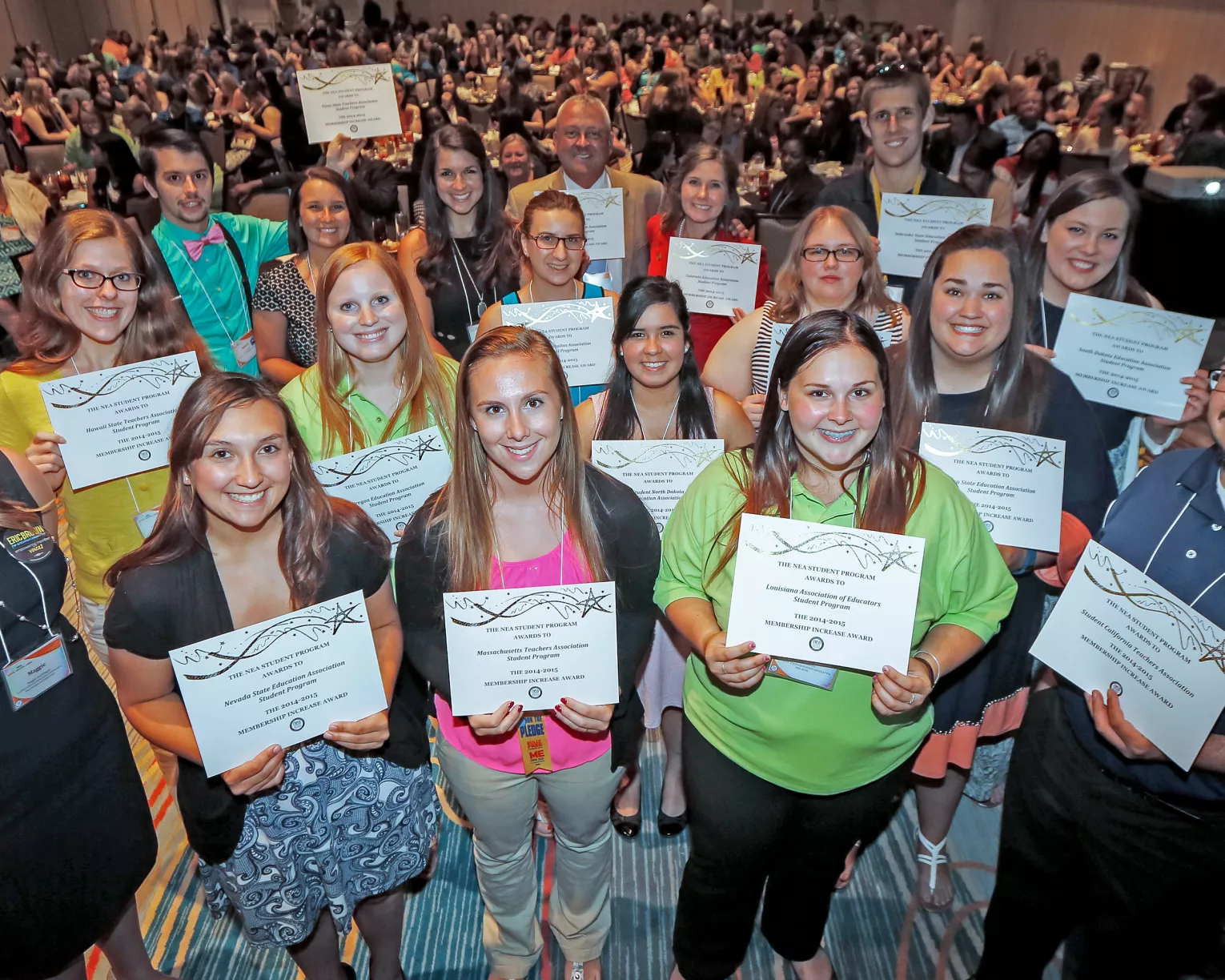Published: October 20, 2022
AE chapters provide members with professional learning opportunities, including access to an educator network and grassroots community coalitions. Through AE, new educators can also learn about racial justice in education and how to advocate for students inside and outside of the classroom.
If you’re an AE chapter leader or are interested in becoming one, check out NEA’s “Aspiring Educators Chapter Toolkit,” at nea.org/aspiringeducatorschaptertoolkit, for an in-depth look at how to create, build, and expand your campus chapter. The kit offers important tips like these to help you take the first steps:
Form a leadership team.
- To guide the formation of a new chapter, gather a diverse team of students who share a passion for education.
- These students could become the chapter’s governing officers (president, vice president, and treasurer).
- This team should research the school’s requirements for obtaining a club or organization charter, such as the number of student members needed, constitution requirements, and a meeting location.
Contact your state NEA affiliate.
- Every state has an NEA affiliate and Aspiring Educators program. Contact your state’s Aspiring Educators program to find out how to get started. Find your affiliate at nea.org/nea-affiliates or email [email protected] for assistance. Forming an NEA AE chapter on campus allows all chapter members to collaborate with other aspiring educators across the state and around the country.
Find a faculty or staff advisor.
- Most schools require a full-time staff or faculty advisor. An education professor is ideal. However, AE is a student-led group, so any supportive full-time staff member will work.
Draft a constitution.
- Your group’s constitution will set the rules and guidelines that govern the organization.
- Bylaws guide the chapter during decision-making processes; provide information on role charges, official affiliation, and chapter goals; and outline proceedings for elections, filling vacant positions, and more.
Contact your student organizations office.
- Most schools have a department dedicated to student clubs and organizations. This office would provide the information and processes necessary to obtain an official charter from the school.
Attract more Members.
- Recruiting members into the chapter is important not only for chartering the group, but also for the viability of the chapter. Be sure to recruit members who reflect the diversity of your community and the nation.
- Recruitment can be done through casual conversation, by setting up a table during club days, or by distributing flyers around the school.
- The leadership team should collaborate with the membership on what activities to pursue for the semester.
- When chartering an organization, some schools may ask you to provide ideas for activities that your group might organize. These activities can surround educational issues, social justice issues, or could feature collaboration with other student organizations on campus.
Downloads
Are you an affiliate?
Jump to updates, opportunities, and resources for NEA state and local affiliates.

Become an Aspiring Educator
NEA’s Aspiring Educators Program supports, develops, and empowers diverse, pre-service teachers with the resources, networks, and opportunities to lead in their schools, communities, and in all phases of their career.
Stay Informed We'll come to you
We're here to help you succeed in your career, advocate for public school students, and stay up to date on the latest education news. Sign up to stay informed
